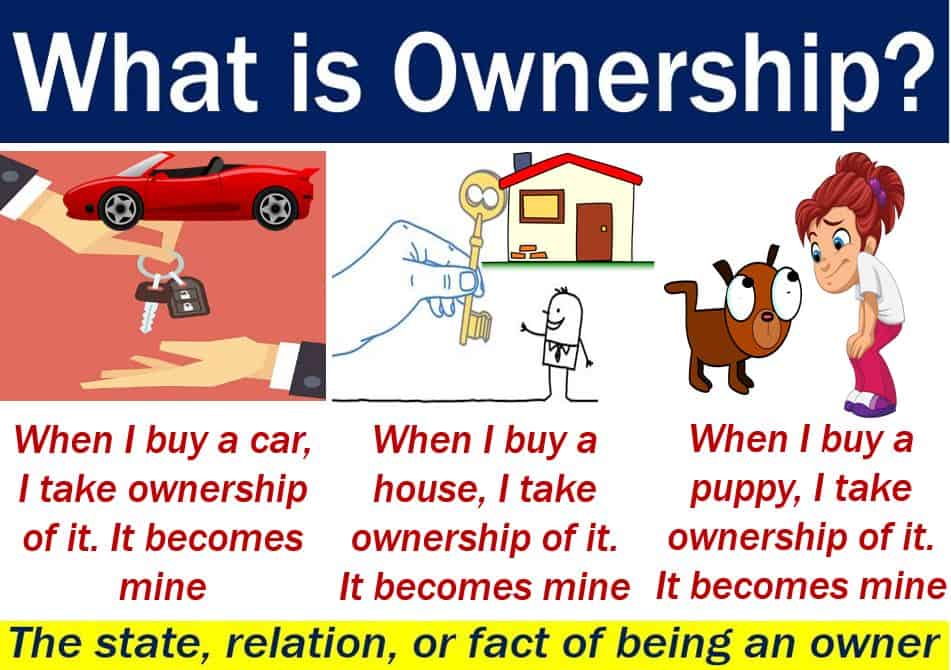Ownership is the state, act, or right of owning something, i.e., possessing something. The term may also refer to an organization or group of owners. It is the exclusive and ultimate legal right to a lawful claim or title. If you have ownership, you can possess, enjoy, sell, give away, bequeath, destroy, or sell an item of property.
In the digital era, ownership extends to online content and virtual assets, reflecting the evolving nature of property in the 21st century.
If you have ownership of something it means that you are the owner; it belongs to you. The term does not only refer to people but also to other entities.
For example, the government is the owner of a state company. Also, a holding company owns its subsidiary businesses.
Ownership – many forms
There are many forms of ownership. For example, there may be private or collective owners of property. There are also common owners of property. The property somebody owns may be an object, building, or land.
In fact, there are even owners of intellectual property. Intellectual property refers to patents, trademarks, slogans, i.e., things our minds create.

People and other entities can gain ownership of property in the following ways:
- By buying the property with money.
- If somebody gives you something as a gift, you become its new owner.
- You can be the owner of something if you won it in a bet.
- When somebody bequeaths something to you, i.e., leaves something for you in their will, you assume ownership of it.
- You can become the new owner of something if you receive it as damages.
- If I make something and keep it, it is my possession.
- In a barter system, one person trades something for something else. If I trade my goat for a ton of chopped wood, I lose possession of the animal and gain possession of the wood.
- We can also become owners of something if we worked for it. For example, if somebody offers me some chickens for painting their house, I become the new owner of the chickens.
Losing ownership
We can just as easily cease being owners. For example, as a consequence of a foreclosure or seizure. A person may also lose possession of something following an eviction.
Additionally, we might lose something in a bet, bequeath it to a relative or friend, or simply give it away.
Ownership rights can also be diluted or lost through legal actions such as eminent domain, where the government takes private property for public use, typically providing compensation.
